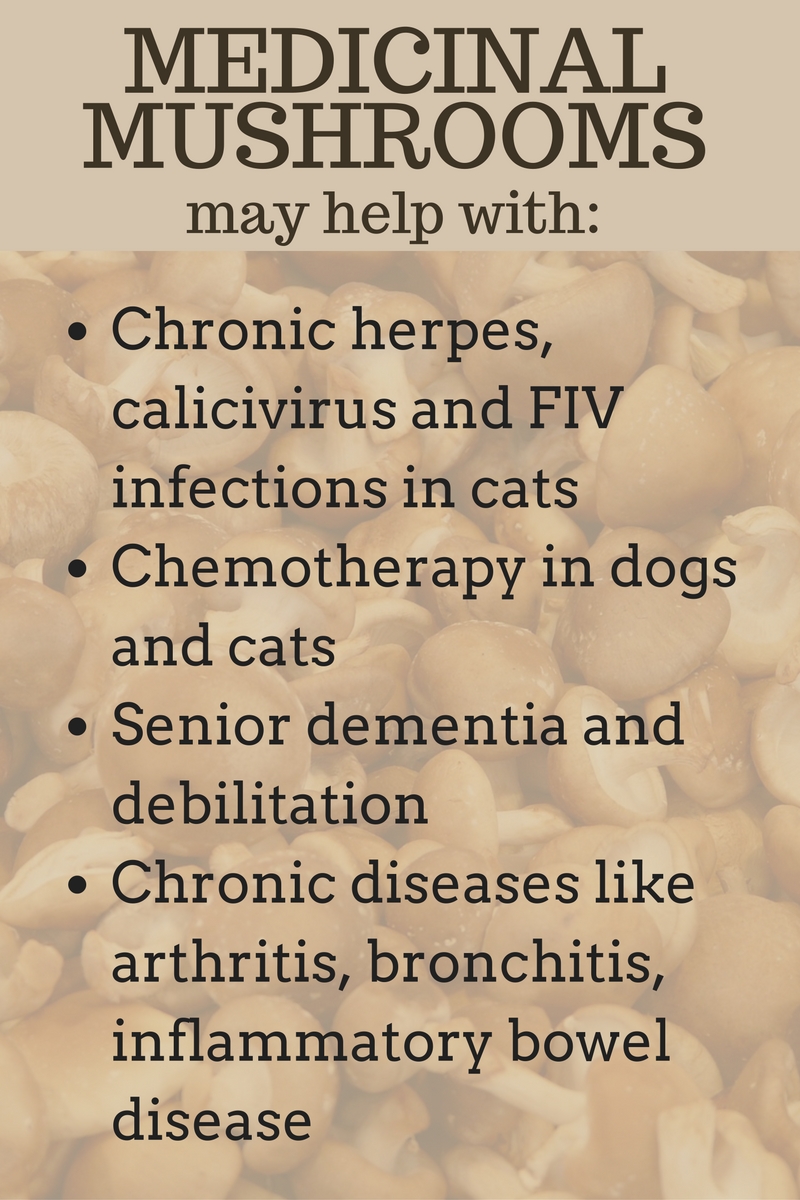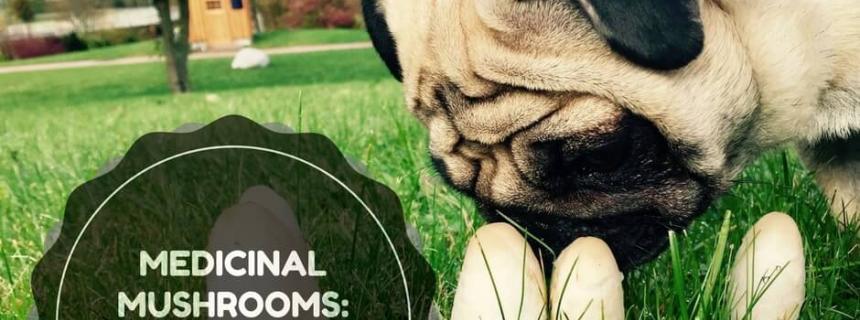Medicinal Mushrooms: Helpful or Just Hype?
Medicinal mushrooms and other fungi have been used in humans as functional foods in Eastern cultures for over 2,000 years. As a result, the West is experiencing a growing interest in exploring various mushroom species—including reishi, maitake, enoki, shiitake, turkey tail, oyster, chaga, white button and brown crimini—for their antibacterial, antiviral, anti-inflammatory and immune-enhancing effects as well.
 How can mushrooms help my pet?
How can mushrooms help my pet?
Many drugs and herbal supplements, including penicillin, contain ingredients from fungi. Beneficial substances found in mushrooms specifically include lectins, triterpenes, polysaccharides, protein, selenium, potassium and vitamins D and B12.
From a Traditional Chinese Veterinary Medicine (TCVM) perspective, mushrooms and other fungi are considered warming and nourishing tonics, which is why they are so beneficial for senior pets. They also act as mild diuretics and may help disperse accumulations (tumors) within the body.
We suspect medicinal mushrooms may be helpful for several conditions, including:
- Chronic herpes, calicivirus and FIV infections in cats, due to their immune-modulating effect and antiviral properties
- Chemotherapy in dogs and cats, due to their antioxidant and liver-protective effect
- Senior dementia and debilitation, due to both antioxidant, antimicrobial and immune-boosting benefits
- Chronic diseases like arthritis, bronchitis, inflammatory bowel disease, due to their anti-inflammatory properties
There is also much speculation that medicinal mushrooms may be used in cancer prevention. This is a controversial topic and is currently being researched on specific species of fungi.
Choosing a mushroom supplement
There are many claims as to the “magical” benefits of fungi—and some of these are undoubtedly true—but when it comes to over-the-counter medications, it is truly a “buyers beware” market. Remember that while there are similarities between different species of fungi, there are differences, too. What might be best for one condition may not be ideal for another.
How the supplements are prepared is also very important. If not prepared correctly, medicinal mushrooms may become useless. In fact, 90 percent of the products on the market are simply dried biological material called mycelial biomass. Extracted products are absorbed by the body more efficiently.
A good trick is to look for the beta glucan content. Found in the cell walls of fungi, oats and barley, beta glucans help support the immune system. If the product label lists the beta glucan content, it is likely to be an extracted supplement.
It is very important to research all supplements and be selective. As always, any supplement used in pets should be discussed with your veterinarian prior to use.
What about preparing fresh mushrooms?
All mushrooms contain toxic substances. Even the mushrooms that are considered very safe to eat should be cooked to breakdown these toxic substances. While it is unlikely that eating a small amount of raw mushrooms is harmful, it is still wise to cook them, especially for our small companions.
Medicinal mushrooms can either be cooked in a stir fry-like fashion or be made into a tea to pour over the pet’s food. To do this, use 1/4 cup dry mushrooms (such as shiitake) and soak in 1 cup of hot water for at least two hours. This mixture can then be poured over the pet’s food.
When adding to your pet’s diet, start with only small amounts of the new food to be sure it agrees with his/her digestion. In general, 2 to 10 grams of fresh mushrooms per day for a dog and 1 to 2 grams for a cat are considered safe.
While I do not think medicinal mushrooms will ever replace the medications I currently use in practice, they do provide more options to augment the prevention and treatment of disease in our pets with very few side effects or drug interactions.
Of course, there is far more research available about medicinal mushroom use in humans than in animals and even in human medicine, further research is needed to assess the benefits on specific disease conditions.
For now, however, good quality supplements are well worth considering.


